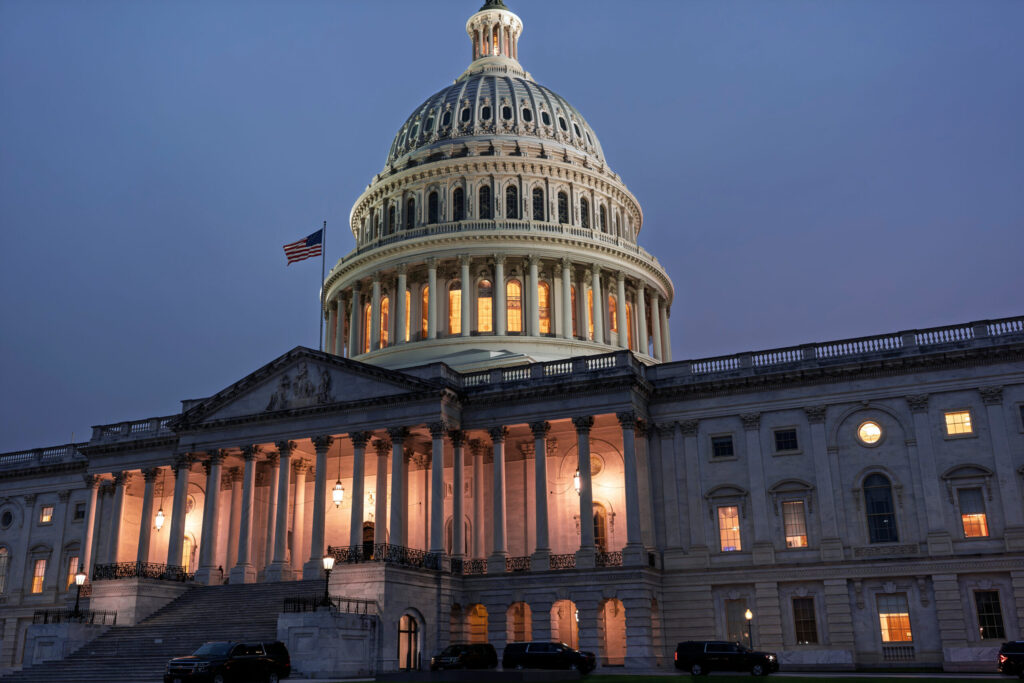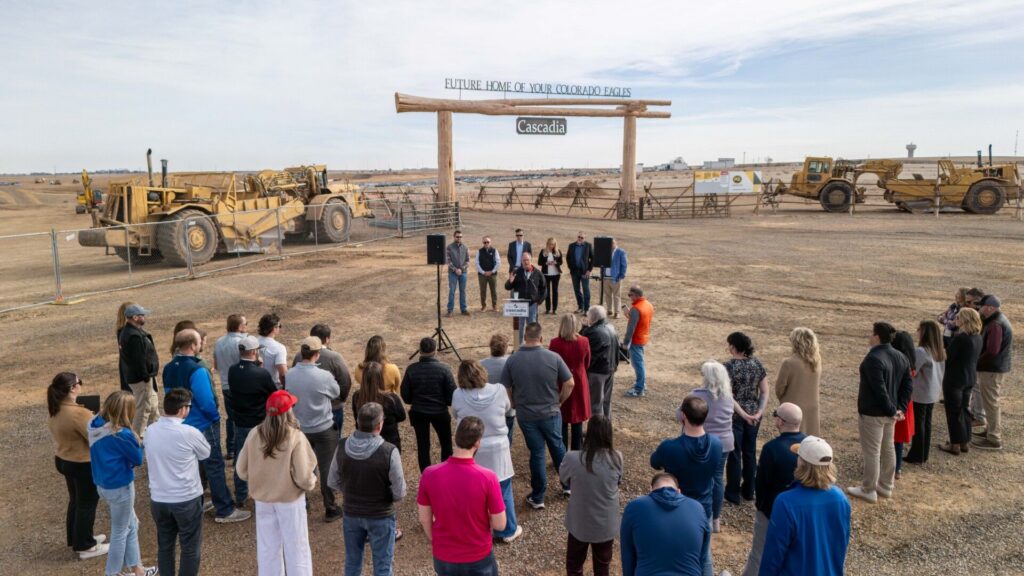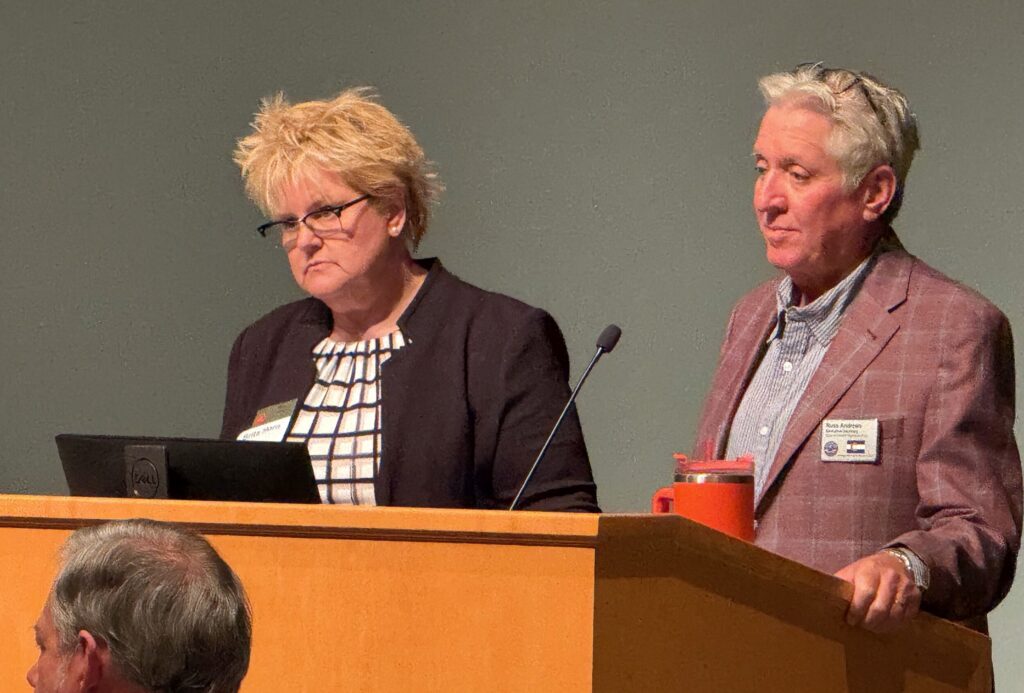Construction litigation reform roller-coaster concludes with unthought-of unanimous votes
It was almost anticlimactic when the bipartisan construction defects litigation reform bill passed unanimously in the Senate on May 4, sending the much-anticipated legislation to Gov. John Hickenlooper’s desk.
While there had been plenty of drama surrounding the measure throughout most of April, after the governor, House sponsors and prominent stakeholders announced a deal had been reached at a celebratory news conference on April 19, it was an easy downhill run for House Bill 1279.
The bill establishes a requirement that a majority of condominium unit owners agree to pursue a complaint against a builder for construction problems, something sponsors say they hope thaws what has become a frozen segment of the state’s housing market. Developers have said for years that Colorado statutes make it too easy for homeowners’ associations — in some cases, just a few members of a board — to launch multi-million dollar class-action lawsuits, driving up costs and making it prohibitive to build projects.
In swift succession, the bill passed with unanimous support out of a House committee and then on the House floor, where sponsors, Assistant House Majority Leader Alec Garnett, D-Denver, House Minority Whip Lori Saine, R-Dacono, and a key co-sponsor, Assistant House Minority Leader Cole Wist, R-Centennial, where instrumental in the bill’s navigation, winning unanimous approval a week later in a Senate committee.
And although the construction litigation issue was one of just two top priorities stressed by Hickenlooper and legislative leaders at the beginning of the session, for a while the bill’s fate had all the makings of an old-fashioned cliffhanger, keeping watchers on the edge of their seats for a hair-raising stretch when it seemed to dangle at the edge of a precipice, and then teasing that it might not be resolved until next season.
But a combination of determination, persistence, imagination and a willingness to try fresh approaches, coupled with some long sessions of negotiations that stretched late into the night, pushed the legislation across the finish line, a goal that had eluded lawmakers for years.
Before the session started, Garnett said he’d been working with Wist and state Sen. Jack Tate, R-Centennial — one of House Bill 1279’s Senate sponsors, along with Senate Minority Leader Lucia Guzman, D-Denver — on the question. He said he saw potential to find a solution by examining “some other ideas that might change the conversation.”
As it turned out, it could have been a combination of fresh approaches that did the job, including splitting proposals into several separate bills rather than trying to solve it all with an omnibus approach.
Because House Bill 1279 was one of a half-dozen bills addressing the problem — there was a mix of partisan attempts and bipartisan approaches — stakeholders caution against proclaiming that its passage will lay the problem to rest, as it only tackles one aspect of a complicated issue. But from the time it was introduced, late on a Friday night in the middle of March, through the doldrums of early April when negotiations seemed to have floundered and sponsors delayed its initial committee hearing three separate times for a total of three weeks, until the news conference declaring a breakthrough had been achieved, the bill carried the weight of the session’s expectations — and eventually met them.
“This bill may not solve all the housing problems, but it is a significant step towards building more condos and providing attainable housing options to working and middle class Coloradans who are struggling to buy a home,” said Kathie Barstnar, co-chair of the Homeownership Opportunity Alliance coalition — a group of builders, business and civic groups and affordable housing advocates — and executive director of NAIOP Colorado, the Commercial Real Estate Development Association.
HOA co-chair Mike Kopp, president of the business advocacy group Colorado Concern and a former Senate minority leader, lauded the bill as a positive development for Colorado’s business community and overall economy.
“Employers and Colorado’s economic progress are dependent on being able to attract a strong workforce, and that means employees who can afford to live near where they work and buy a home to put down roots in the community,” he said. “This bill is a step in the right direction.”
“HB 1279 is a welcome and positive step forward in reforming a system that has stifled attainable housing in our communities for far too long. This bill not only encourages greatly needed condo development, it protects the rights of homeowners,” said Denver Mayor Michael Hancock, a member of the 40-member Metro Mayors Caucus. The bipartisan group, representing millions of residents, kept up the pressure through the session and popped the corks with the rest of the stakeholders when lawmakers announced they’d reached an agreement.
Groups representing homeowners and condo associations, likewise, lauded the bill and said their inclusion at the negotiating table made a big difference from previous years.
Jonathan Harris, chair of Build Our Homes Right, a coalition of condo owners and their legal advocates, gave his approval to the bill.
“Build Our Homes Right and our advocates have been working hard to hammer out this reasonable construction defect compromise, one that both protects the basic legal rights of homeowners unlucky enough to buy a defective home and addresses developers’ concerns, as well,” he said. “We’ve said we can live with this bill and remain cautiously optimistic that passing this bill will put this issue to bed, once and for all.”
Midway through the session, Garnett told The Colorado Statesman lawmakers had experienced a sort of eureka moment when they decided that requiring that condo owners pursue alternative-dispute resolution — binding arbitration or mediation — rather than class-action lawsuits wasn’t the magic bullet that would drive down costs for builders, as developers had long insisted. Negotiations instead focused on creating what sponsors call “informed consent” among condo owners, which all sides eventually agreed would make lawsuits difficult enough to initiate that builders could have confidence to return to the market.
Carolynne White, who co-chairs the Real Estate Department at Denver’s powerhouse Brownstein Hyatt Farber Schreck law firm, told The Statesman that it was a reasonable move to bust up the logjam. “Arbitration can take as long and cost just as much as regular litigation depending on the circumstances,” she said.
She said there’s no question her clients who are developers have been staying out of condo construction — except a few at the most expensive end of the scale — because of the high likelihood they’d get tied up in court for years.
“Almost any dispute that a homeowner may have with a builder easily morphs into a class-action lawsuit because there’s incentives to do so and disincentives not to,” White said.
And although 17 cities and one county in Colorado have passed their own local construction defects reform ordinances in recent years — most out of frustration lawmakers couldn’t reach agreement on a statewide fix — White said that ultimately hadn’t provided what her clients said they needed.
“They would say they very much appreciate that municipalities were willing to take that step, but until one of those was litigated, it wasn’t clear the courts would uphold the ability of municipalities to regulate that. No developer wants to be the test case for that,” she said. “Developers want certainty. Investors and banks want certainty. If there’s some chance not only there could be litigation but the statute they thought would protect them won’t, that’s the kind of risk you can’t underwrite, so they will choose to build other types of housing.”
White said the reaction to the legislation outside the Capitol has been encouraging but noted that because of the way lawmakers dealt with construction defects reform this year, no one should consider the problem solved.
“I think it’s fair to characterize the mood as cautiously optimistic,” she said. “Their approach this year was to tackle this issue in a more piecemeal rather than in a more comprehensive reform. For that reason, this piece of legislation doesn’t solve all of the problems that my clients see in the construction defects law, but the problem that it chose to tackle, which is the relative ease a (homeowners association) can file a class-action claim on behalf of all the homeowners — that problem definitely would be remedied by this legislation.”
And while she wasn’t ready to pop the corks on condo construction statewide just yet, White said there should be some noticeable effect.
“All the data shows there is significant pent-up demand for this product type in this market. If this opens the door to even a few new developments bringing this product type to market, in my mind it will be successful,” she said. “I think it will have a broader effect than this.”
There’s plenty of demand for condominiums, particularly located near the many Light Rail stations popping up around the metro area, she said, echoing comments made throughout the session by many of the mayors who were encouraging lawmakers to stick with it.
“Condominiums are the ideal product to bring together the need for greater density around transit and the desire to build a stable base of homeownership,” White said. “The lack of condominium development around all these transit stations — if this continued for much longer, that would be a real lost opportunity.”
Because of the ease of filing certain types of litigation over construction defects, she added, “the only truly for-sale attached condo product that has entered the market is at the very high end of the price range. In this environment, the main solution is to buy insurance against it — and that’s very expensive. Because the high-end condo market is less price sensitive, you have luxury condos entering the market but not that mid- to low-level range.”
“If this opens the door to even a few of those, that would make a big difference in the metro area,” she said.
White said she didn’t mean to toss a wet blanket on House Bill 1279 but added that it was important to point out what else developers might want in future legislative sessions to spur the market more.
“I don’t want to minimize the importance of 1279, but another issue we need to tackle is a builder’s right to repair,” she said, noting that Nevada recently changed its law to establish that when condo residents raise a complaint, builders have the opportunity to fix whatever’s causing the problem and head off legal action. She emphasized that her colleagues in Nevada have told her it’s created a significant benefit all around.
“It’s the next great breakthrough to really make this system functional,” White said. “Maybe that’s a bill for next year.”
Still, she said it was right to acknowledge the importance of this session’s legislative breakthrough.
Up until it was announced, White said with a chuckle, this year had looked just like previous ones — “it looked like they were going to solve it, and then they didn’t” — but the ending came with a twist.
“I don’t know what the differentiating factor was — whether it was individual participants or the mood to persevere,” she said. “But for some reason they were able to break through and make it happen.”












